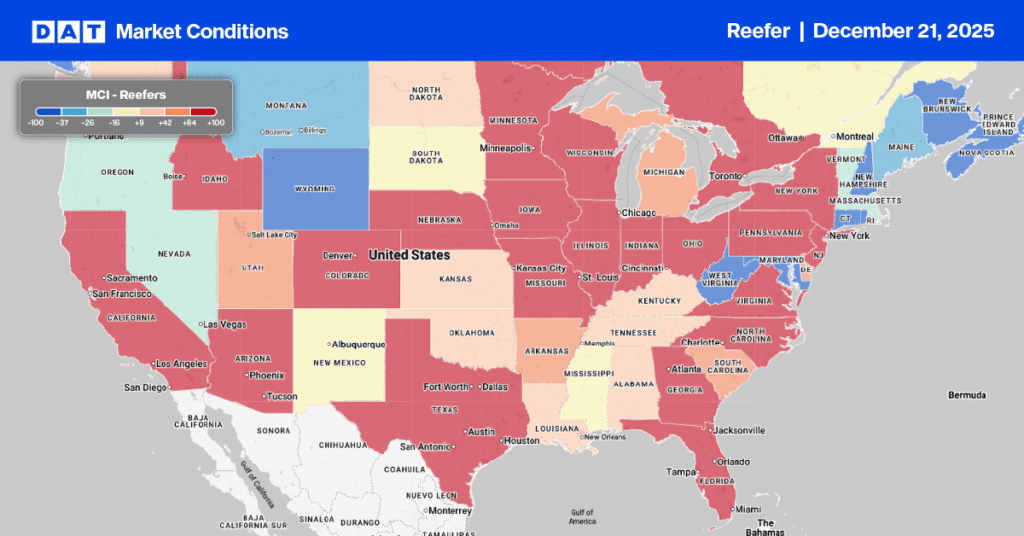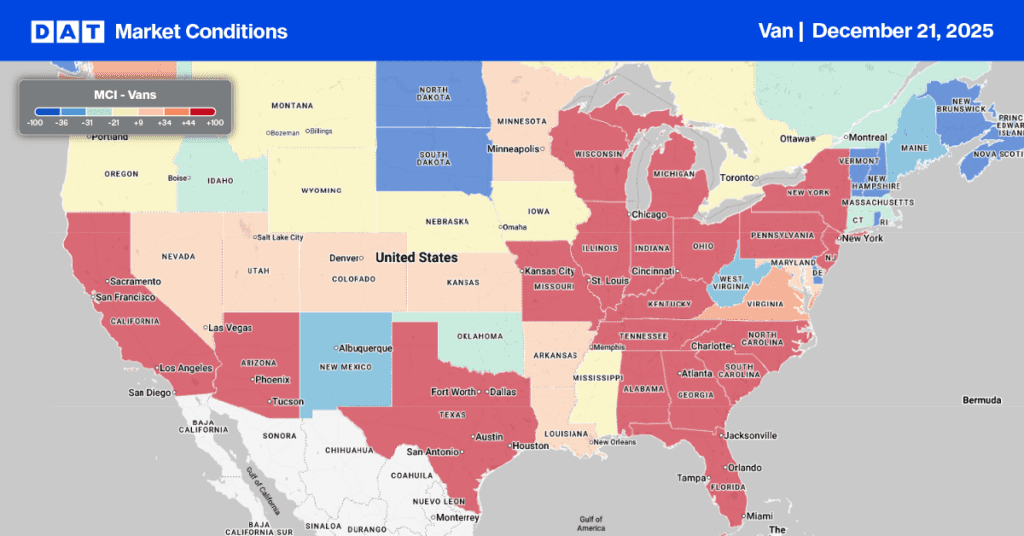Fraud in trucking has gone global, according to Scott Cornell, National Practice Leader, Transportation, Travelers Inland Marine. On a recent DAT Freight & Analytics show, we discussed the latest trends in cybersecurity and fraud; here’s a summary:
Dean Croke:
What are the latest trends shippers, brokers, and carriers should be watching for?
Scott Cornell
So we’ve seen a big increase in the sophistication that the cargo thieves are using. A lot of that is because about two to three years ago, cargo theft went from these small, domestic, relatively unsophisticated cargo theft rings that were given primarily straight theft, meaning they would physically go out straight to the freight steel it where it’s at to these larger international rings. And these large international rings are sophisticated because they are soup-to-nuts organizations.
They have their call centers, built their supply chains, and have boots on the ground where they need them. They have a bigger demand because they work globally rather than on a small, regional, domestic basis here. That’s why we’ve seen some of these increases and increased sophistication.
Chad Kennedy:
What are some of the standard methods being used to steal freight?
Scott Cornell:
The two most common methods we’re seeing, the most common one we’re seeing right now, is they will steal the identity of legitimate carriers. It will pretend to be that carrier, and they’ll get booked on the load. Once they’re booked on the load, they turn around and pretend to either be the prey broker that booked them or pretend to be a prey broker.
They then call a legitimate carrier and ask that legitimate carrier to go pick up the load. That legitimate carrier has no idea that they’re being involved in this. They think they’re just getting a call from a legitimate freight broker, and then they use that carrier to go out and get the freight.
Dean Croke:
Is cargo theft still occurring in the typical hot spots?
Scott Cornell:
One of the problems we see with that is there’s a big spread in where cargo theft happens now because it’s become a work-from-home career choice for these international criminals. So they don’t have to physically be in the port areas, in those major areas in Southern California, Dallas, and Miami that we’ve seen traditionally; they can now target freight anywhere they want to because they’re just going to send this innocent truck driver to pick up the freight wherever they want it.
So they can concentrate more on what they want rather than where it is once they have that carrier pick up the freight. They will then have that carrier deliver it to a cross-dock. Then they will begin to launder the freight so it may go in as televisions come out the other side of the cross-dock as electronics, and from there, they may take it to another cross dock or a warehouse where they can then take the labels off, create another piece of new documentation. It comes in as electronics and goes out as FAK (freight of all kinds).
Dean Croke:
Do you have some numbers on how big the problem is in the trucking industry?
Scott Cornell:
From 2022 to 2023, we saw a 57% increase in cargo theft, which is a massive jump. Keep in mind that we’re going by the CargoNet numbers, and because cargo isn’t mandatorily reported, there’s a good chance the actual numbers are underreported. 2023 had just under 3000 reported thefts, and based on year-to-date data, 2024 is already projected to be higher than 2023.
Chad Kennedy:
What tips would you give a shipper to help prevent cargo theft?
Scott Cornell:
If you’re the shipper and you’re releasing freight to somebody, ensure that who you’re releasing the freight to matches up precisely with who your freight broker set was coming to pick up that freight. We often see a fictitious pickup where ABC Trucking is supposed to show up at one o’clock to pick up the freight on Friday, and somebody shows up at 11 o’clock on Friday and says they are here for that load. We suggest the shipper get some verification numbers, including a secure release number, to ensure they release the freight to the right carrier.
Dean Croke:
We’ve heard trailers are being modified to facilitate theft. Can you speak to this trend?
Scott Cornell:
So, for short loads, the bad guys will have nuts and bolts on the door hasp and handle rather than the rivets installed at the trailer factory. This allows them to remove doors without breaking the shipper’s seal. In reality, the driver stops, swings the doors open, away from the dock, and backs up to the dock so the people on the dock don’t get to see the door tampering. We advise shippers to inspect trailers to ensure they are loading a trailer with all rivets, nuts, and bolts.
The complete interview can be found here.


